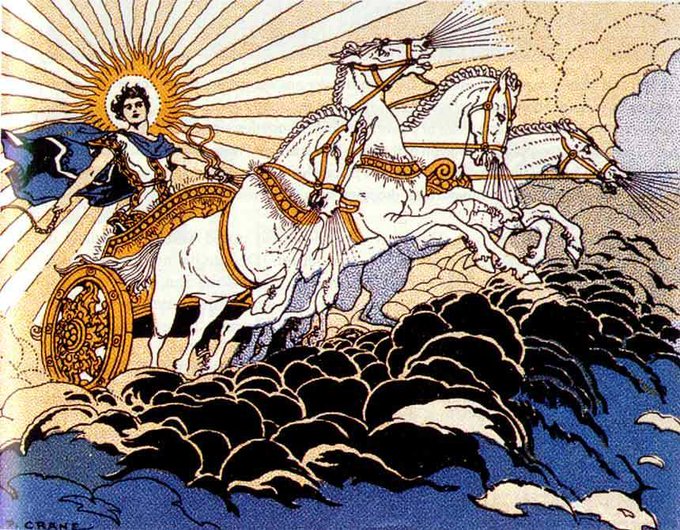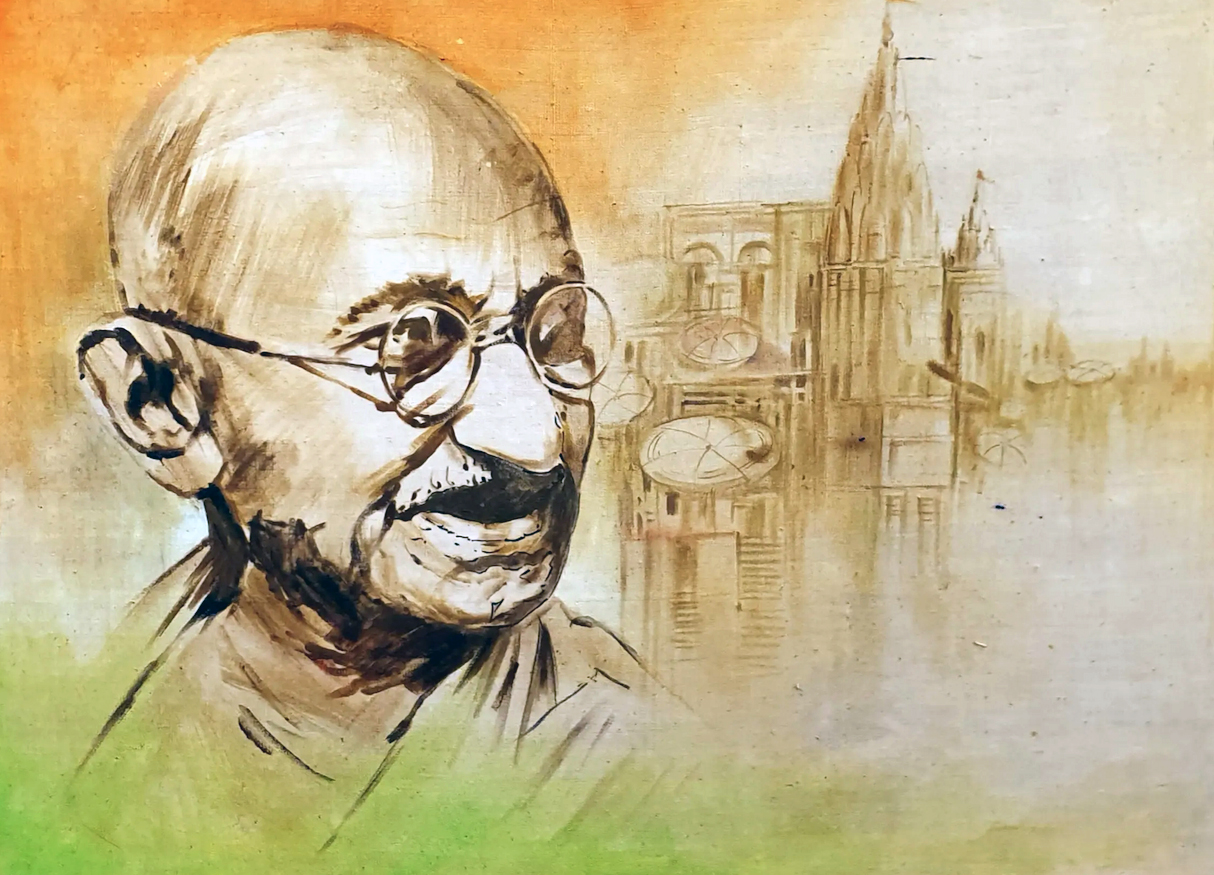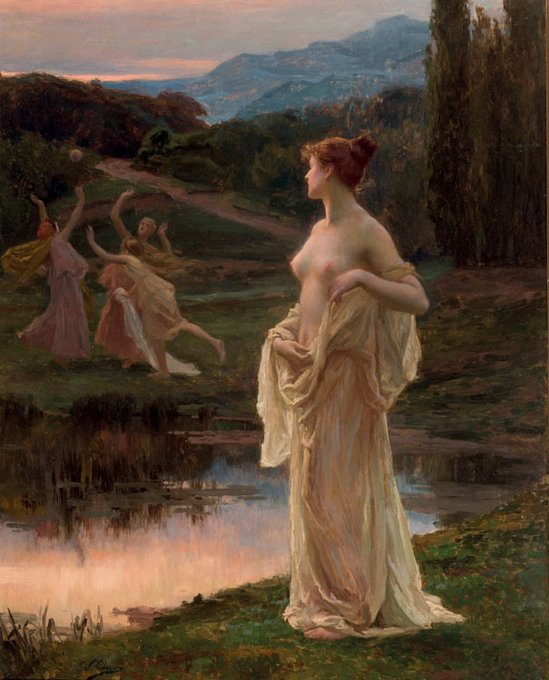What I am saying here about the decline of the Aryan is not confined to India. It is a fact observable in any country with a multiracial population, in which the State opposes the promotion of the superior ethnic elements, instead of encouraging it at all costs and by all means. This is particularly evident in any country with a multiracial population in which the state clings to democratic rule, where power rests with the majority. It is a fact which, in an ironic twist of fate, is increasingly threatening to take hold in Britain itself, as a growing multitude of non-Aryans of the most diverse races, and people of no race at all, peacefully invade and swarm.
I have been forbidden to visit England since my participation in the Hitler camp at Costwolds in August 1962, and I cannot, unfortunately, give here the result of recent personal observations. I can, however, state that the situation created nine and more years ago by the presence on British soil of almost two million Africans, Jamaicans and Pakistanis, not to mention, of course, the Jews who had arrived as early as 1933, was already alarming, if not tragic. And, according to the echoes that I have been able to hear, it has only worsened since then, as no measures have been taken to expel all these non-native elements.
There has been an attempt, it seems, or a pretence of an attempt, to exercise somewhat tighter control over the entry of these Commonwealth subjects into England. But this is not the solution to the problem. Non-Aryans, and especially Africans and Jamaicans (the latter, originally African Negroes too), are multiplying at a rate nine times faster than the average European Aryan. It is clear, therefore, that an absolute ban on even one new immigration would surely not be enough to stem the danger to Britain’s very fabric.
Assuming that not a single non-Aryan, Negro or Jew, or Indian Sudanese who have been converted to Islam for some time (for that is what a ‘Pakistani’ is), lands in England from now on, even for a temporary stay, it would make virtually no difference to the situation in the long run, that is to say, to what is already the tragedy of the race problem, in the country which has madly given itself the mission of fighting Hitler’s racism with arms. It wouldn’t change anything because, I repeat, the non-Aryan immigrants who are already settled in England—who work there, who live there with their families, who have acquired, for the most part, citizenship—multiply much faster than the English; and because the benefits, and in particular the medical benefits, which are lavished on them, only encourage their demographic growth. All further immigration being, let us assume, forbidden, the numerical proportion of the Aryan to the non-Aryan population of Great Britain during the next few decades, and a fortiori; during the centuries to come, would nevertheless shift in favour of the non-Aryans, and among these, the Negroes: the people who multiply fastest.
We must also take into account the inevitable mixing of races, all the more frequent (and more revolting) because to the growing perversity of the men and women of the advanced Dark Ages, we must add the influence of a whole literature designed to arouse and maintain a morbid sexual curiosity. Today, yesterday, ten years ago and more, it is (and was) not uncommon to see in the streets of London some beautiful blonde Englishwoman pushing in front of her a child’s carriage in which rest (or rested) one or sometimes two little Euro-African half-breeds.
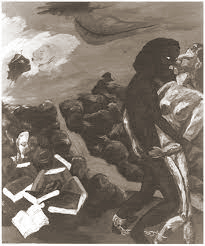 You can see them even in small towns (I have seen them in Croydon, Chettleham, and elsewhere). It would only be possible to put an end to these shameful and unnatural unions and this production of half-breeds, by changing the mentality of a youth that has so far been increasingly indoctrinated with anti-racism, while taking radical measures for the definitive removal, if not the physical elimination, of current or potential undesirables.
You can see them even in small towns (I have seen them in Croydon, Chettleham, and elsewhere). It would only be possible to put an end to these shameful and unnatural unions and this production of half-breeds, by changing the mentality of a youth that has so far been increasingly indoctrinated with anti-racism, while taking radical measures for the definitive removal, if not the physical elimination, of current or potential undesirables.
If they are to be kept alive and their labour used, all half-breeds should be sterilised without exception, as well as Aryan women guilty of crimes against the race: for once they have been impregnated, even once, by foreign seed, they are no longer safe (there have been cases in which the child of a very acceptable husband bore a dangerous resemblance to the unacceptable lover whom his mother had left long before his conception). And all Negroes, Jews, and other non-Aryan elements should be forced to leave the national territory, or at least to live there only in exceptional cases, and then subject to laws and regulations that keep them in their place—such as the famous Nuremberg Laws of September 15, 1935 that protected the racial integrity of Germans under the Third Reich.
But for this to be possible, Britain would have to have a dictatorial government of the same type as that of Germany in 1935, and inspired like it by the ancient faith in the excellence of blood purity. Can it ever hope to have one?
Such a Government was able, across the Rhine, in 1933, to come to power ‘by the legal way’, that is to say ‘democratically’, by relying on a majority of voters (and what a majority!) in universal suffrage. It was able to do so because the German people, without having the racial homogeneity the Führer dreamed of, at least had sufficient biological unity to feel their interest linked to that of the Aryan blood. If nothing is done, and done soon, to remove the non-Aryans in Britain from participation in public affairs, it is clear that, given their soaring numbers, they will play an increasingly decisive role in the country’s internal and external politics and its cultural life. (The theatre, cinema and television already seem to have long since become the ‘reserved hunting ground’ of the Jews, without whose approval nothing is played.)
The Aryans will eventually have to abdicate the position of leadership which the virtues, inherent in their race, had given to their fathers, at a time when democracy was conceived only among equals, and there were neither Negroes nor Jews in England[1]. They can, of course, remain pure of blood. And for that to happen, they will have to take great care that their children’s minds are not contaminated by the increasingly insistent influence of the multiracial school, radio, television, cinema, the press, books (especially textbooks); in a word, all the means of dissemination that the majority, hostile to all ‘racial pride’, will have taken more and more firmly in hand.
What is certain is that their numbers will diminish more and more, and especially diminish in proportion to those of men of other races who will then call themselves, without having any right to do so, ‘the English people’ (like so many Indians today, Dravidians, or even mixed-race aborigines who, without having any more right to do so, boast of being part of the Aryajati, the Aryan race, the biological elite of their country).
Eventually, in a few centuries, they will be a hundred thousand, fifty thousand, twenty thousand, scattered over the whole surface of the British Isles, then overpopulated with half-breeds of different shades. They will be drowned in some hundred or two hundred million robots, generally dark-skinned, with the most varied features, a termite mound directed by the diabolical intelligence of a few Jewish technocrats. They will be the only creatures in this termite mound worthy of the name ‘man’ in the sense we would use it. But the world of that time will have no use for such creatures.
Perhaps they will cultivate in themselves a belatedly awakened Aryan consciousness. Perhaps they will manage, despite the distances, to meet from time to time, in small groups, and talk nostalgically about ‘old England’, now deader than the Athens of Pericles. Perhaps, at some pitiful meeting, on some historic anniversary, some man of knowledge and insight will arise and tell his brethren of the race the remote and deep causes of their downfall.
‘Behold,’ he will tell them, ‘we are paying the price of the folly of our fathers of the 19th and 20th centuries; those who, in what was once our Empire, encouraged the propaganda of the Christian missionaries, compulsory vaccination, and the adherence of the “literates” to democratic principles; of those, above all, who, moreover, stubbornly refused the hand sincerely extended to them by the greatest of all Europeans: Adolf Hitler; of those who, in response to his repeated offer of alliance and his promise to leave us the domination of the seas, unleashed the Second World War against him, drowned his country in a deluge of phosphorus and fire, and burned alive nearly five million of his compatriots, women and children, under the burning rubble or in the shelters where the liquefied asphalt of the streets penetrated in fiery streams. We are paying the price for the crimes of Mr Churchill and others and of all those who believed in them and fought against National Socialist Germany, our sister, the defender of our common race. These men, you may say, were bona fide, but short-sighted. That may be so. But that doesn’t excuse them before history. Stupidity is itself a crime when the interest of the nation, and especially of the race, is at stake. We cannot do what our fathers did—to their shame and ours—and escape punishment!’
The punishment will be to have some woolly-haired, simian-faced Christian as Prime Minister of Great Britain: a descendant of equatorial African immigrants annihilated for ‘services rendered’, and perhaps named Winston, after the gravedigger of the former British Empire. The punishment will be to live amid a brownish, camel-headed England—also, at least in large part, woolly-haired—whose former inhabitants, the legitimate inhabitants, the Aryans, whether Normans, Saxons or Celts, will number as few as the Native Americans on the reservations do today in the U.S.
Then, perhaps, groups of true Englishmen, more obstinate than the others in their resentment of the defeated and betrayed, more combative if not less desperate, will burn, every 8th of May, some effigy of Churchill, purposely grotesque; his big puffy, plump face, furnished with the legendary cigar, and smeared like that of a clown; his big belly stuffed with gunpowder. May 8 will, indeed, at last be recognised as the anniversary of the shame of England as much as of the misfortune of the ‘sister nation’, once hated, now adored with all the passion that accompanies a remorse that we know is useless. Perhaps these same Englishmen, and others, will publicly worship Adolf Hitler, the Saviour whom their ancestors of yesterday rejected and whom their ancestors of today—our contemporaries—still insult. Perhaps there will be, among the dwindling number of Aryans throughout the world, a militant minority, serene, almost happy in its unshakeable loyalty, who will worship him while waiting to become (they or their descendants) the bodyguard of the Avenger he hinted at, but was not: Kalki.
But all late repentance and retrospective devotions will remain ineffective, both in Europe and among the Aryan minorities in other countries, especially in an increasingly Jewless and negrified America. Nothing can save the youngest of humanity’s noble races from the fate that must befall it as a consequence of the crimes committed or tolerated by too many of its representatives, under the influence of an anthropocentrism of the wrong sort. These crimes will be followed by ‘return shocks’, slowly no doubt, but all the more irresistibly as those who committed or tolerated them were more responsible (or should have been) while being less detached, more focused on themselves and their narrow-minded notions, than on the Universe: the Cosmos and the essence of the Cosmos.
There are all kinds of crimes, the wages of which have been accumulating for millennia—crimes against all animal aristocracies, from mighty bison to graceful deer, from great cats to common cats, tigers in miniature; crimes against the massacred forest, against the impassive sea, sullied by all the filth of invading industry; crimes against all human aristocracies, especially against the Aryan race itself, against the Germans in Europe, against the purest Aryas in the Indies, in Asia, in the name of Christ or Christian ‘values’; in the name of Democracy or Marxism, always in the name of some faith or philosophy invented and spread by Jews.
____________
[1] There were no Jews in England from 1290, when King Edward I expelled them, until the middle of the 17th century when Cromwell, who owed their bankers enormous sums, recalled them.
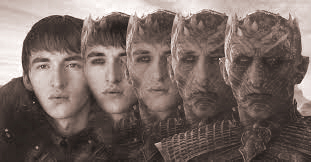 Is he, in particular, who, in April 1947, made me greet the sight (and the subterranean roar!) of the Hekla in full eruption as one greets the divinities in the temples in India, and, in an ecstasy of joy, intone in Bengali the hymn to Shiva: ‘Dancer of Destruction, O King of the Dance’?
Is he, in particular, who, in April 1947, made me greet the sight (and the subterranean roar!) of the Hekla in full eruption as one greets the divinities in the temples in India, and, in an ecstasy of joy, intone in Bengali the hymn to Shiva: ‘Dancer of Destruction, O King of the Dance’?



